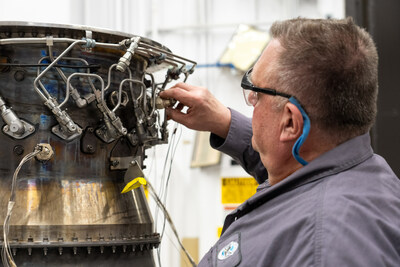RTX's Pratt & Whitney collaborates with FAA to study non-CO2 emissions under FAA ASCENT program
Tests will compare emissions from conventional Jet A and
"As the aviation industry targets a goal of net-zero CO2 emissions by 2050, we continue to pay close attention to addressing the environmental impact of other emissions, including cruise non-volatile particulate matter and NOx," said Sean Bradshaw, senior technical fellow of sustainable propulsion at Pratt & Whitney. "Combustor rig tests with
The project will compare emissions from Jet A kerosene and SAF comprised of
"By bringing together expertise from industry, government, and academia, this project represents an important step towards understanding and reducing the environmental impacts of aviation, including those arising from non-CO2 emissions," said Dr. Philip Whitefield of
The rig tests will take place at Pratt & Whitney's facility in
About Pratt & Whitney
Pratt & Whitney is a world leader in the design, manufacture and service of aircraft engines and auxiliary power units. To learn more, visit www.prattwhitney.com.
About RTX
With more than 185,000 global employees, RTX pushes the limits of technology and science to redefine how we connect and protect our world. Through industry-leading businesses – Collins Aerospace, Pratt & Whitney, and Raytheon – we are advancing aviation, engineering integrated defense systems, and developing next-generation technology solutions and manufacturing to help global customers address their most critical challenges. The company, with 2023 sales of
For questions or to schedule an interview, please contact corporatepr@rtx.com
![]() View original content to download multimedia:https://www.prnewswire.com/news-releases/rtxs-pratt--whitney-collaborates-with-faa-to-study-non-co2-emissions-under-faa-ascent-program-302095482.html
View original content to download multimedia:https://www.prnewswire.com/news-releases/rtxs-pratt--whitney-collaborates-with-faa-to-study-non-co2-emissions-under-faa-ascent-program-302095482.html
SOURCE RTX








